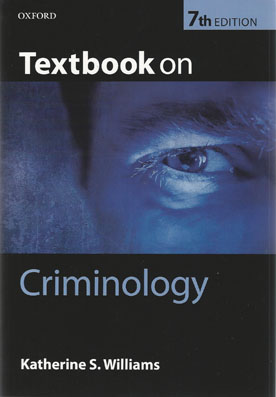We are now closed for the Christmas and New Year period, returning on Monday 5th January 2026. Orders placed during this time will be processed upon our return on 5th January.

Textbook on Criminology offers an engaging and wide-ranging account of crime and criminology, addressing the theoretical, practical, and political aspects of the subject.
The clarity of approach makes it an ideal text for students wishing to gain a firm grasp of the fundamental issues, together with an appreciation of some of the complexities surrounding the study of criminology.
The author deals with the major questions of criminology, such as 'how do you define a crime?', 'why do people become criminals?', and 'how should we deal with criminals?'. Each question is studied from an objective and academic viewpoint and encourages greater social, political, and philosophical awareness of crime, criminals, and society's response to them.
The text also maps out the changes in crime control and society's expectations in relation to crime control. For example, students will find the insightful chapter on terrorism and state violence to be of particular interest and relevance; established criminological theories are applied, and the author addresses issues such as political responses to terrorism and the reasons why people become terrorists.
The text is ideal both for students studying towards a degree in criminology, and students opting to study criminology as part of another subject, such as law.